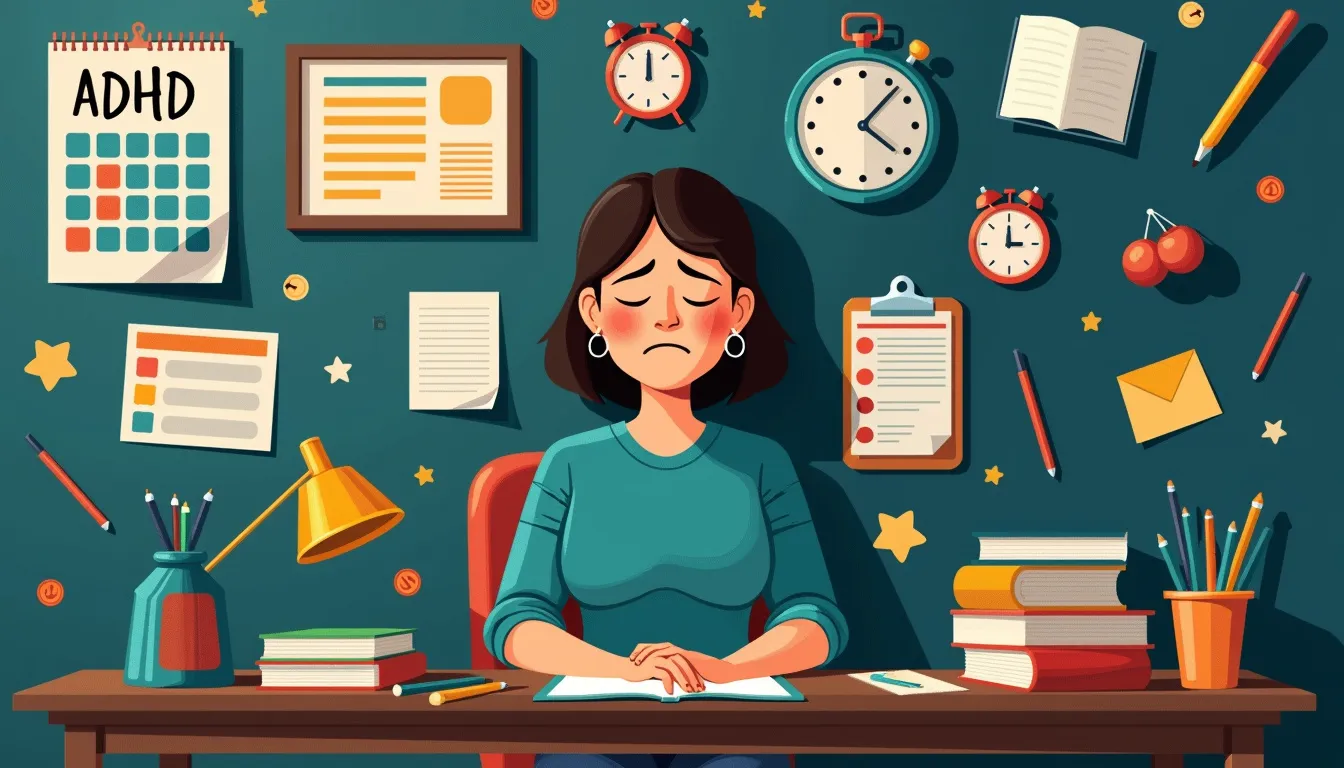Why Most Parents Don’t Realize Emotional Regulation is the Golden Nugget of ADHD Parenting: The Need for Tools Like Bonding Health

Parenting a child with ADHD can be an overwhelming experience, presenting challenges such as impulsivity, inattentiveness, hyperactivity, and emotional dysregulation. These behaviors often lead parents to focus mainly on managing their child’s actions—using discipline, structured routines, or behavioral therapies. Yet, there’s a powerful but often overlooked element in ADHD parenting: emotional regulation.
What is Emotional Regulation?
Emotional regulation refers to the ability to manage and respond to emotional experiences in a balanced way. For parents of children with ADHD, this skill is essential—not only for their child’s development but also for their own emotional health. Despite its importance, many parents are unaware of how crucial emotional regulation is for effective ADHD parenting. Instead, they frequently concentrate on visible behaviors, often missing the underlying emotional dynamics that fuel these challenges. For a comprehensive look at how ADHD and emotional regulation intersect, check out ADHD symptoms and emotional resilience.
So, why has it taken so long for emotional regulation to come to the forefront of ADHD parenting strategies? And why has it taken until now for a tool like Bonding Health to be created to address this issue? Let’s dive deeper into the reasons behind this gap in understanding and the potential of emotional regulation to transform ADHD parenting.
Historical Focus on Behavioral Management

For decades, ADHD treatments have primarily focused on behavioral management. Parents are usually advised to implement strategies to curb hyperactivity, boost focus, and manage impulsivity. These strategies might include structured routines, rule enforcement, and behavioral therapies such as Cognitive Behavioral Therapy (CBT). While helpful, these approaches often neglect the emotional struggles accompanying ADHD, such as emotional dysregulation.
Children with ADHD may find it challenging to regulate strong emotions like anger or frustration, leading to frequent outbursts. Parents concentrating only on behavioral management can miss the bigger picture—emotional regulation in both child and parent is key to long-term success. For resources on structuring routines and managing ADHD behaviors, explore effective ADHD parenting strategies that incorporate emotional regulation techniques.
The Emotional Toll on Parents
It’s easy to overlook the emotional toll that parenting a child with ADHD can take on the parents themselves. ADHD parenting often involves constant interruptions, emotional outbursts, and the feeling of walking on eggshells, trying to anticipate the next challenge. This relentless pressure can lead to burnout, anxiety, and depression in parents. Without emotional regulation, parents may find themselves in a cycle of reactive parenting—yelling, frustration, and guilt—further straining the parent-child relationship.
Most parents are simply not equipped with the tools to manage these emotions. Traditional ADHD parenting advice focuses on external techniques, such as behavior charts or medication, rather than internal emotional skills like reappraisal (rethinking how to view a situation), mindfulness, and self-compassion. As a result, many parents feel helpless when their emotions get the best of them, leading to emotional exhaustion and a strained relationship with their child.
Why Emotional Regulation Has Been Overlooked
Several reasons contribute to why emotional regulation hasn’t been a focal point in ADHD parenting until recently:
- Immediate Results Focus: Parents often seek quick, visible improvements in managing disruptive behaviors, leading them to prefer short-term behavioral techniques like discipline or reward systems. Emotional regulation is a more gradual process, requiring patience and consistent effort.
- Lack of Awareness: Most parents are unaware of the significance of emotional regulation in ADHD parenting, which is seldom covered in conventional resources. Parents may not realize their own emotional responses impact their child’s behavior and well-being.
- Cultural Stigma Around Emotions: Society often prioritizes “fixing” a child’s behavior rather than addressing the emotional needs of both the child and parent.
- Limited Resources: Until recently, resources that focus on emotional regulation were sparse. Here is an example of games that can aid in building emotional regulation skills alike.
Why It Has Taken This Long for a Tool Like Bonding Health to Be Created

Given the long-standing focus on behavioral management, it’s no wonder that a comprehensive tool like Bonding Health’s ADHD Parenting Companion has only just emerged. But why now, and what makes this app so revolutionary?
- Changing Understanding of ADHD: Our understanding of ADHD has evolved in recent years. ADHD is no longer viewed solely as a behavioral disorder; it is increasingly understood as a condition that involves emotional dysregulation, executive functioning challenges, and heightened sensitivity. This broader understanding has opened the door for tools that address more than just behavior.
- The Rise of Emotional Intelligence: Emotional intelligence, or the ability to recognize and manage one’s emotions and the emotions of others, has become a popular concept in recent years. As emotional intelligence has gained traction in both professional and personal development, it has become clearer that emotional regulation is a critical skill in many areas of life—including parenting.
- Technology Meets Emotional Health: Advances in technology have made it possible to deliver personalized emotional regulation tools directly to parents through apps like Bonding Health. The convenience of an app allows parents to access real-time strategies, track their emotional progress, and connect with other parents experiencing similar challenges. This kind of technology simply wasn’t available a decade ago, which is why Bonding Health is able to offer a novel solution to ADHD parenting today.
- Increased Awareness of Parent Well-Being: There is growing awareness of the importance of parent well-being in raising healthy, well-adjusted children. Parenting experts and psychologists are recognizing that emotionally healthy parents are better equipped to handle the challenges of parenting, particularly in neurodiverse families. Bonding Health’s app puts the parent’s well-being at the center, offering emotional regulation tools that benefit both the parent and child. For additional reading, explore the benefits of emotional regulation on ADHD management.
Conclusion
Emotional regulation has long been the missing piece in ADHD parenting, but it’s never too late to recognize its importance. Parents who learn to manage their own emotions are not only better equipped to handle their child’s ADHD behaviors but also protect their own mental and physical health. Bonding Health’s app represents a groundbreaking step forward in providing parents with the emotional regulation tools they need to thrive in their parenting journey.
As emotional intelligence becomes an increasingly recognized skill, the hope is that more parents will embrace the importance of emotional regulation. With tools like Bonding Health leading the way, the future of ADHD parenting looks brighter, healthier, and more emotionally balanced than ever before.
Transform Your ADHD Parenting Journey with Bonding Health
Ready to uncover the power of emotional regulation in ADHD parenting? Bonding Health’s innovative app is designed to equip you with the tools and techniques to manage your own emotions and support your child’s unique needs. Download our Bonding Health ADHD Parenting Companion today, and begin your journey towards a calmer, more connected family life. Sign up for our free ADHD journals to stay informed, inspired, and prepared to make a difference every day.


